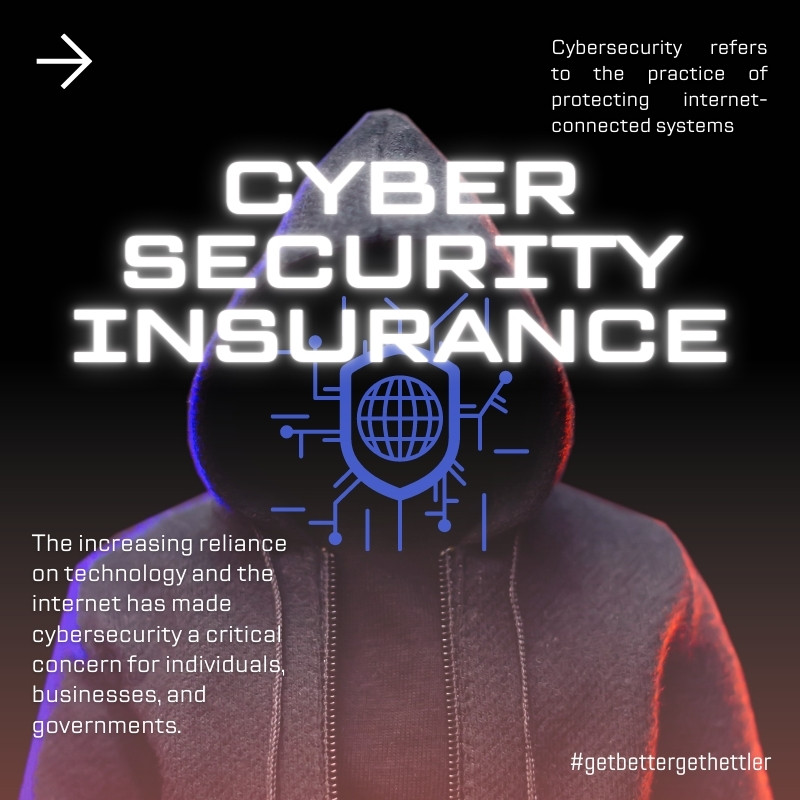
We Speak Insurance-ese!
– (We translate insurance into plain English.)
Cyber Security Insurance
In an era of leaked embarrassing photos, confidential emails, and digitally connected employees and customers, it’s no wonder businesses are rushing to cover themselves with cyber liability insurance.
1. Cyber-attacks are the greatest risk of doing business in North America (World Economic Forum Global Risks 2016)
2. Data fraud/theft was ranked second by the WEF Global Risks Report
3. In 2015, average costs related to a cyber-crime attack cost US companies $15 million a year (Fox Business)
4. 43% of cyber-attacks in 2015 were against small businesses with less than 250 employees
5. One in five small to midsize businesses reported being attacked on their computer network
Compare Quotes from Multiple Carriers!
We do the shopping so you don’t have to.
Resolving a Claim from Cyber Insurance
Reviewing cases of cyber-attacks in Texas demonstrates that cyber security insurance does not always pay out.
Houston-based Ameriforge Group Inc. (DBA AFGlobal Corp) was hugely disappointed when its insurer, Federal Insurance Co., denied that claim. An Ameriforge executive was bamboozled by a criminal in China posing as AFGlobal’s CEO. The fake CEO requested secret money transfers. The executive complied in the phishing scandal. Federal Insurance Co. begged off paying the claim, saying the scam didn’t involve the forgery of a financial instrument, which the policy required. AFGlobal is sued Federal Insurance Co.
Cyber Security Insurance is Necessary in a Digital World
Some industry regulatory bodies will probably soon require companies to carry cyber liability insurance policies. However, while they mitigate damage from cyber-crime, these policies can only go so far to protect a business. Companies need to take responsibility for ramping up their own cyber security, rather than relying on an insurance policy. Even if the policy covers financial losses and keeps a business afloat, the reputation damage and/or business time loss may prove insurmountable.
So businesses must focus on taking security precautions. Data encryption, 24/7 network monitoring, controlling access to data and having a strong disaster recovery plan can all help to minimize risk. As actuarial data in this area improves, companies with strong cyber security protocol may eventually be able to negotiate lower premiums with insurers. See the National Association of Insurance Commissioners principles of best cybersecurity practices here.
Testimonial from Owner of KJ Works
Company: KJ Works
Policies with HIA: General Liability, Contractors Policy, Inland Marine, Commmercial Auto and Worker’s Comp.
Industry: Residential and Commercial Construction
Working with Hettler Insurance Agency has made my life less stressful in various ways. I was switching over from a previous insurance company and they made sure to find me the best prices that would benefit me in the long run. If I ever have any questions about anything regarding my policies, HIA is very easy to get in contact with.
Vehicle Insurance
Insurance protection for the vehicles that matter most to you.
– Auto Insurance – We insure thousands of cars, trucks, vans, and commercial vehicles used in all types of businesses.
– Motorcycle Insurance – Start your Motorcycle riding experience with insurance through Hettler.
– ATV and Motorsport Insurance – Does it have a key? Is it a dirt bike? We have a program to cover it.
– Classic Car Insurance – Classics and antique vehicles require special coverages. We represent a couple of different carriers to cover them.
– RV and Mobile Home Insurance – Big values traveling down the road? No problem. We handle the big risks all the time.
– Boat and Watercraft Insurance – We cover boats of all sizes.
Property Insurance
Insurance protection for the property that matters most to you.
– Homeowners Insurance – Your home is your castle. Protect your most valuable asset with quality coverage.
– Condo Insurance – Condos are a little different. Call us to get your specialized coverage!
– Renters Insurance – Fires in apartments and rental homes are way too common. Renter’s coverage is really reasonably priced.
– Landlord Protection ™ – Renting your home? Protect yourself with landlord insurance.
– Flood Insurance – You have to have a separate policy to cover flood… It can happen even here in the desert.
– Storm & Hail Insurance – Texas has had thirty-six $100,000,000 or larger disasters from severe storms in the past 25 years and more than 80% of the time, hail was to blame for the damage.
– Earthquake Insurance – Earthquakes have occurred in 39 states since 1900, and about 90% of Americans live in areas considered seismically active. Most home insurance policies do not cover earthquake damage. Good news, earthquake insurance can be inexpensive.
Commercial & Business Insurance
Coverage that helps protect your business
– Business Owners Policy (BOP) – Lubbock County is in the top 10 for commercial property damage due to wind, hail and dust storms; and the top 10 for commercial auto comprehensive claims due to weather; and the top 10 for lightning storm damage.
– General Liability Insurance (GL) – Insurance coverage for when you or your products hurt someone or damage property.
– Commercial Property Insurance – Coverage against Fire, Wind, Hail, and many other perils.
– Business Auto Insurance – Cover your business with insurance for commercial and business vehicles.
– Commercial Liability Insurance – also known as “general liability insurance” is a broad policy that covers a number of liability exposures of a business. Business liability insurance is often the first line of defense against lawsuits from customers, allowing an owner to protect both personal and business assets.
– Commercial Umbrella Insurance – Insurance coverage that gives an extra layer of liability protection from the rising costs of lawsuits.
– Workers’ Compensation Insurance (workers comp) – Medical bills and lost income Insurance coverage that helps you take care of injured employees.
– Cyber Security Insurance – In an era of leaked embarrassing online photos, confidential emails and digitally internet connected employees and customers, it’s no wonder businesses (of all sizes) are rushing to cover themselves with cyber liability insurance.
– Surety Bonds – Get your notary bond, your contractor’s bond, your bid bond, or your performance bond from Hettler Insurance Agency.
– Contractor’s Insurance – Many contractors operate out of the home and may not require commercial property insurance. Instead, contractors typically perform work at the customer’s location. This can be a residential home, a construction site or a commercial property.
– Builder’s Insurance – With a good Builder’s Risk policy, the structure, materials and equipment are protected from theft, vandalism and weather damage during the construction phase.
Life/Health Insurance
Insurance protection for your family’s health.
– Health Insurance – Insurance for you, your family, and your pocketbook. Uncovered medical costs can bankrupt you.
– Personal Umbrella Insurance – An umbrella policy provides additional layers of liability protection. If the liability limits are exhausted on your home, auto, or other underlying insurance policy, your umbrella insurance policy takes over and provides you with additional protection. You may need this in case of a car wreck involving a fatality, etc. For a minimal cost, you can protect your assets, and your future earnings.
– Whole Life Insurance – Life insurance coverage designed to be there for your whole life.
– Term Life Insurance – Insurance protection to help keep your family secure for a specific period of time.
